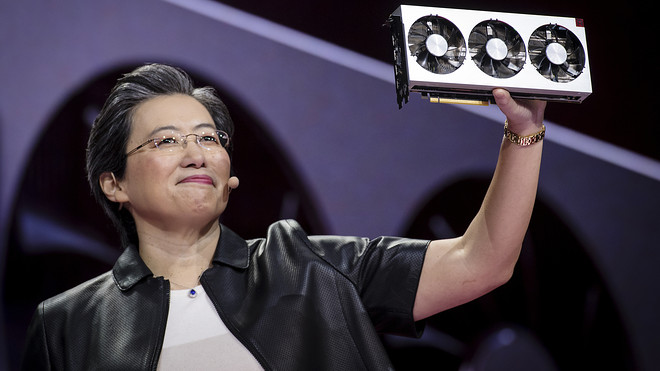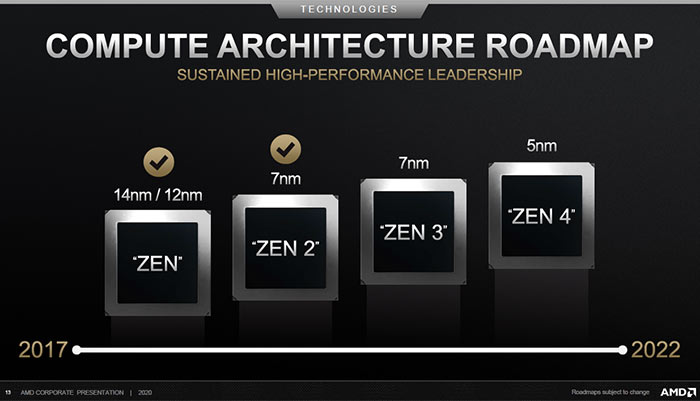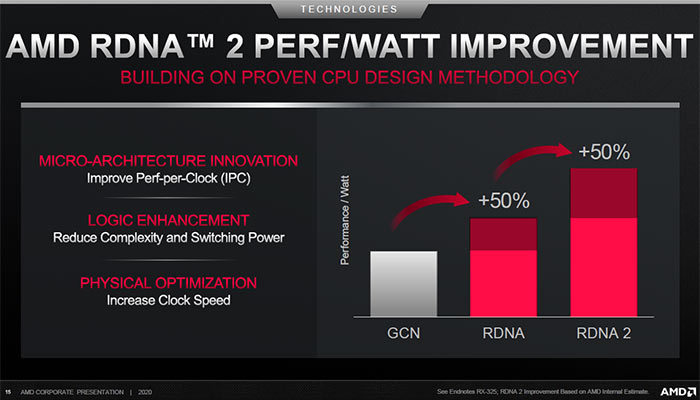AMD reveals more about PS5 and Xbox Series X graphics, plus its Zen 3 and 4 plans
5nm rumors quashed

Sign up for breaking news, reviews, opinion, top tech deals, and more.
You are now subscribed
Your newsletter sign-up was successful
AMD has released more info on the graphics architecture that will be powering the PS5 and Xbox Series X (plus its future PC gaphics cards), and has scotched rumors that it will be switching to the 5nm process for its upcoming Zen 3 processors.
AMD has released fresh slides that confirm that Zen 3 will continue to use the 7nm node. That means we’ll have to wait until Zen 4, which is aiming for release before 2022, for 5nm chips.
- The best AMD processors
- How about the best AMD graphics cards?
- Intel vs AMD: who makes better CPUs?
Moving from 7nm to 5nm would result in smaller, faster and more efficient chips, and with Intel still on 14nm, going to 5nm could cement AMD’s performance lead over its competitor.
However, that now seems it won’t happen until the end of 2021/early 2022. By that time, Intel has committed to closing the gap and will be using the 7nm process for its future processors.

RDNA 2 details
The slides also give us a bit more info on AMD’s upcoming RDNA 2 graphics architecture, which will power its future graphics cards for PCs, as well as the PS5 and Xbox Series X consoles.
According to the slides, RDNA 2 will bring improvements to performance-per-clock (IPC), clock speeds and better logic, which will bring a claimed 50% increase in performance per watts compared to RDNA.

This is exciting news for the two new consoles, as their compact designs (compared to gaming PCs) means they will be relying on the hardware AMD is building to offer better performance while being less power-hungry.
Sign up for breaking news, reviews, opinion, top tech deals, and more.
AMD also teases a follow-up, RDNA 3, that will come before 2022. While both RDNA and RDNA 2 stick with the 7nm process, RDNA 3 will apparently use an ‘Advanced Node’. Make of that what you will.
While Zen 3 sticking with 7nm may disappoint some who were expecting a more radical change with upcoming AMD processors, there’s no doubt that the next few years are looking pretty exciting for Team Red. We’re also looking forward to seeing how Intel responds.
- These are the best processors of 2020
Via Hexus

Matt is TechRadar's Managing Editor for Core Tech, looking after computing and mobile technology. Having written for a number of publications such as PC Plus, PC Format, T3 and Linux Format, there's no aspect of technology that Matt isn't passionate about, especially computing and PC gaming. He’s personally reviewed and used most of the laptops in our best laptops guide - and since joining TechRadar in 2014, he's reviewed over 250 laptops and computing accessories personally.